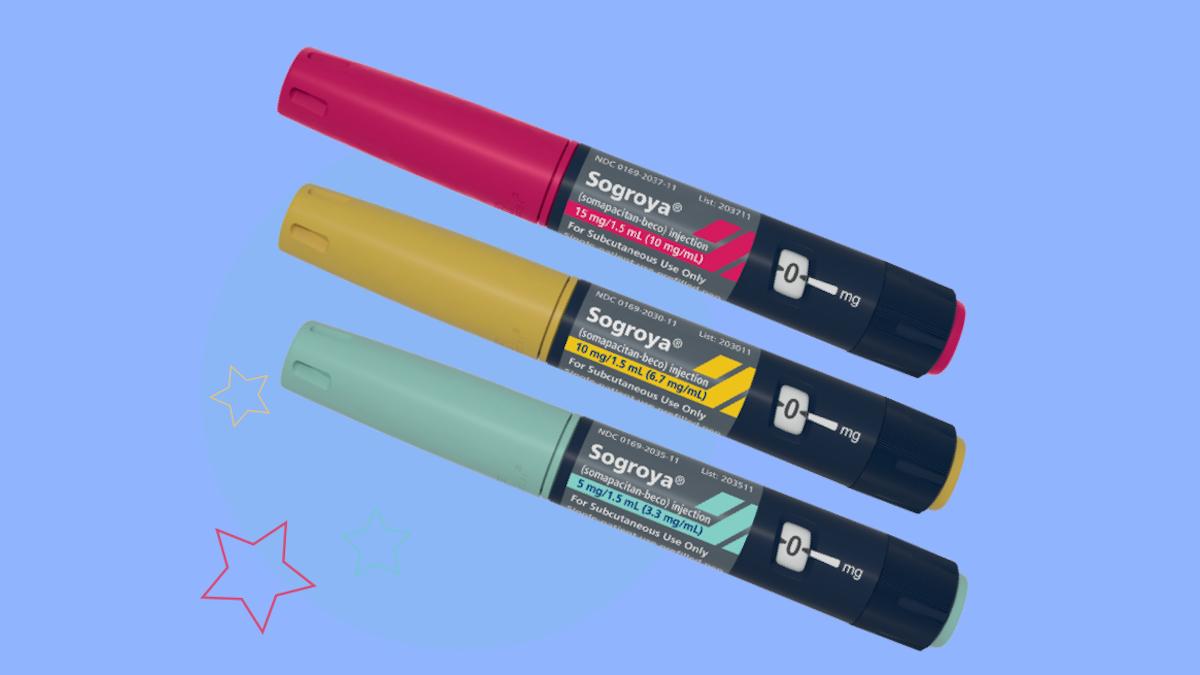Novo Nordisk builds case for Norditropin successor

Novo Nordisk has reported new data with its long-acting human growth hormone (hGH) product Sogroya, showing it is at least as effective as its older drug Norditropin in various paediatric growth disorders.
In the REAL8 basket trial, Sogroya (somapacitan), administered as a once-weekly subcutaneous injection, was at least as effective as a daily shot of Norditropin (somatropin) in children born small for gestational age (SGA), Noonan syndrome (NS), or with idiopathic short stature (ISS).
In the case of NS, Sogroya was more effective at stimulating growth than Norditropin, and the newer drug also outperformed lower doses of the once-daily product in children born with SGA.
According to Novo Nordisk, non-adherence to daily injections is a common problem in children with growth hormone disorders and can cause compliance problems, preventing them from achieving their target height.
In one study, missed injections resulted in a difference of 6.1 cm in height over three years between children receiving regular shots and those getting more intermittent treatment.
While Novo Nordisk is almost indelibly associated with obesity and diabetes drugs at the moment, it has a long heritage in hGH products, and Norditropin remains a big seller for the company despite being first introduced in the late 1980s.
Sogroya was introduced in 2020 to offer a more patient-friendly alternative to Norditropin for adults with growth hormone deficiency and had its label extended in 2023 to include children aged 30 months or older.
Norditropin brought in more than $1 billion in sales a year at its peak and – while it has started to lose market share due to competition from other once-daily hGH products from Eli Lilly, MSD/Merck & Co, and Pfizer – Sogroya has helped Novo Nordisk defend its hGH franchise.
Novo Nordisk no longer separates individual sales of the two products in its financial reporting but said that total sales of rare endocrine disorder products – primarily Norditropin and Sogroya – were just under DKK 5 billion ($745 million) last year.
GlobalData has predicted sales of Norditropin will be $960 million in 2030, with Sogroya contributing $294 million in that year.
In April, Novo Nordisk filed for US and EU approval of Sogroya as a treatment for SGA, NS, and ISS. The REAL8 trial also included a cohort of children with Turner syndrome, but data from that is not expected until later this year.
"Imagine if a child misses only one day of treatment each week, amounting to 52 missed days per year," said Martin Lange, executive vice president for Development at Novo Nordisk. "Over a seven-year treatment window, this results in one year of missed treatment and can have a significant knock-on impact on their health."
Sogroya isn't the only long-acting hGH product on the market as it competes with Pfizer's Ngenla (somatrogon) and Ascendis Pharma's Skytrofa (lonapegsomatropin), which are also dose once-weekly and have been approved to treat paediatric growth hormone deficiency since 2023 and 2021, respectively.
Pfizer doesn't break out sales of Ngenla, while Ascendis – which has also filed to extend Skytrofa's label to include adult growth hormone deficiency – made around $218 million in 2024.











